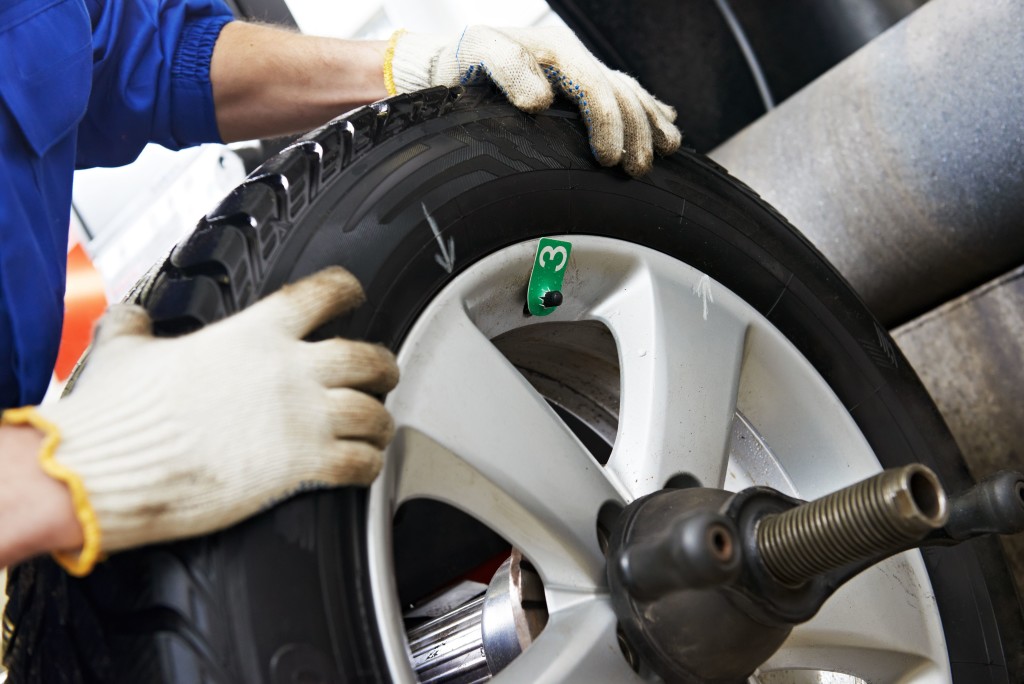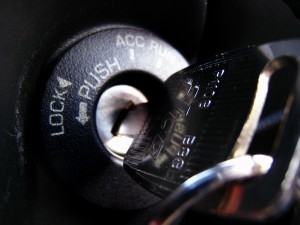5 Tips for Buying Your First Car
 Buying a car is a big decision, so it’s important you do some research before you peruse Craigslist or hit up your local dealer. Below, we share five tips to remember when shopping for your first car.
Buying a car is a big decision, so it’s important you do some research before you peruse Craigslist or hit up your local dealer. Below, we share five tips to remember when shopping for your first car.
1. Know Your Budget – Don’t just decide that $_______ is what you want to spend on a car. Look at your monthly income, and then subtract your expenses. Once you’ve accounted for things like rent, health insurance, food, and recreational spending, also consider that purchasing a car comes with additional expenses, like gasoline, car insurance, and regular maintenance. See what you can afford, and don’t forget to give yourself a little leeway in case any unexpected expenses are thrown your way.
2. Do Your Research – If you’ve found this article, odds are you’re at least somewhat tech savvy. Do some research to learn more about the cars you are interested in purchasing. A site like Kelly Blue Book can help determine a fair price for a vehicle based on its make, model and mileage. If you haven’t narrowed your search down to a specific type of vehicle, do a Google search for other components that are important to you. Search for things like “Best cars under $15,000” or “Vehicles with the best resale value.” As they say, “Knowledge is power.”
3. Research Dealers – Now that you’ve done research on what type of vehicle you want, the next step is to figure out where to buy. Talk to your friends or family members about their buying experience with local dealers. Ask them if the dealership was willing to be flexible with prices, if they took trade-ins, and what type of financing they offer. Ask about their total experience, from the moment they walked onto the lot to the second they drove away. See if they have any specific tips, or if they know of a trusted salesman who improved their buying experience.
4. Bring Your Own Financing – If you’re buying a new car, odds are you’ll be looking to finance your purchase. While most dealership offer financing, if you don’t bring any other options to the table, you won’t have much to use to negotiate your rate. Say, for example, your dealership is willing to finance your purchase with an interest rate of 4.5 percent. If you don’t have a counter offer, odds are the salesman will say this is the best he can do. If you talk to your bank beforehand, you might be surprised to learn they are willing to offer 3.9 percent financing. That 0.6 percent really adds up if you end up with a 48-month or 60-month payment plan. Additionally, since salesmen get a bonus if you finance through their dealership, if you present him with proof that the bank has offered you a lower rate, they may decide to amend their offer. Finally, don’t just settle for an offer to match the bank’s rate. It’s no skin off your back to accept the bank’s 3.9 percent offer instead of the dealer, so ask for a better rate or for $200 off the car.
Note – Here’s an example of how to negotiate financing with a dealer. We’ll use the above number of 3.9 percent and assume we have a $20,000 loan over 48 months. At 3.9 percent you’ll only be paying $21,633.12. You still have leverage because both the bank and the dealer are competing for your money, and both offers are the same. The difference between 3.9 percent and 3.8 percent is $43.20, which may not seem like a lot over the course of four years, but again, you have all the leverage, so use it to your advantage.
5. Shop Around – Similar to the above point, it’s a good practice to shop around and see what types of offers you can get from different dealerships. This is especially useful if you know what type of car you want. Go to three or four dealerships, get their “All-In” price, aka total price you’ll be paying with vehicle add-ons and licensing fees. Make sure you get their financing offer too. Paying $500 less up front doesn’t make much sense if you’re getting a much worse interest rate! Once you’ve collected the information, use it to your advantage. Odds are the salesman gave you his email address, so shoot him an email with your findings and see if he’ll change his offer. Maybe he’ll knock $500 off the price, or he’ll mention that they have a sale coming up that can save you money. Don’t be hostile in your email; Simply lay out the facts, mention that your bottom dollar is what matters most, and thank them for talking with you. Don’t be afraid to walk away. After all, buying your first car is likely the biggest purchase you’ve ever made.
Related source: Kelly Blue Book
-
Why Wheel Balancing is Important
 Feb 11, 2015
Feb 11, 2015Wheel balancing is just another great service we provide at Affordable Auto Service. Wheel balancing is important because it keeps your tires, bearings and suspension system in order. See, when a wheel is set onto the axle with a new tire, it needs to have its weight evenly distributed around the axle. Our wheel balance can […]
-
Give Your Car Some Love This Valentine’s Day
 Feb 12, 2014
Feb 12, 2014Are you looking for the perfect gift for the auto-enthusiast in your life this Valentine’s Day? Give them a great and practical gift by helping them take care of their car! We rely on our car for so many things in our daily life; Taking Billy to hockey practice, running errands on the weekend and […]
-
5 Common Reasons Your Car Won’t Start
 Jul 18, 2013
Jul 18, 2013You rely on your car for a lot of things, like shuttling the kids to soccer practice or for getting to work on time, so it’s easy to see why problems can arise if your car refuses to start. There are literally hundreds of reasons why your car won’t start, but some are more common […]




